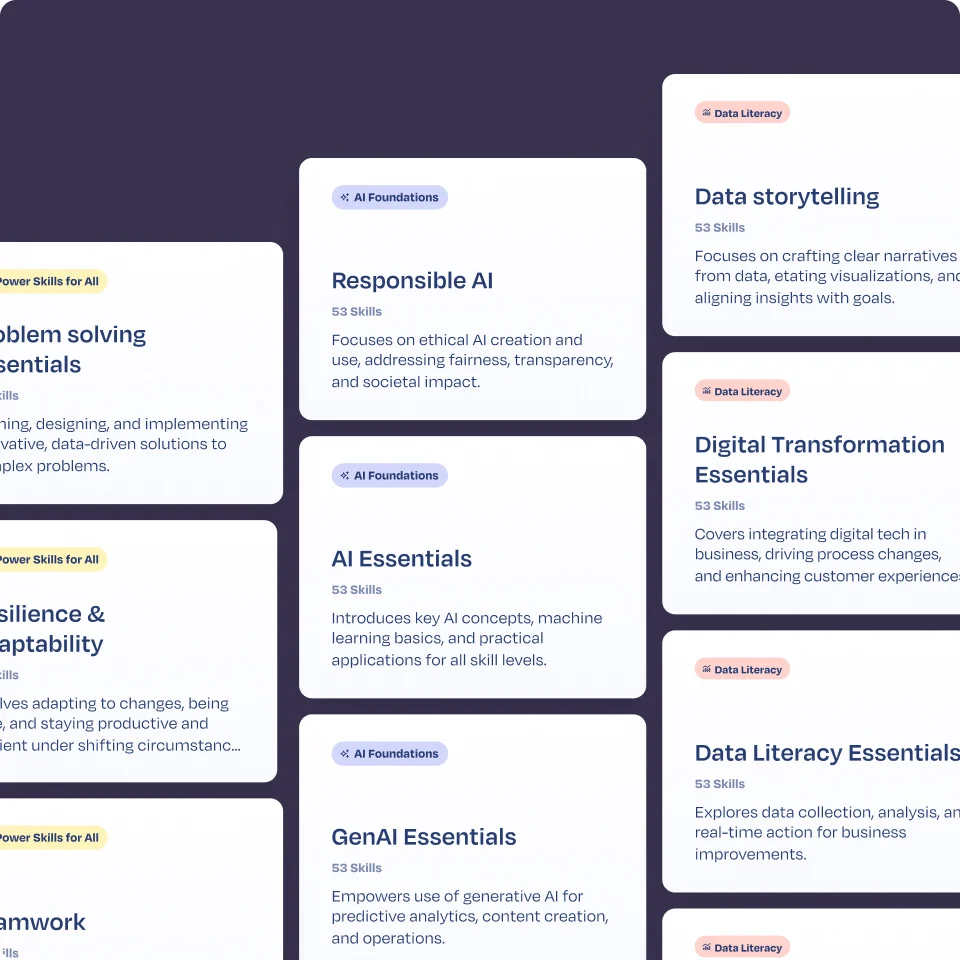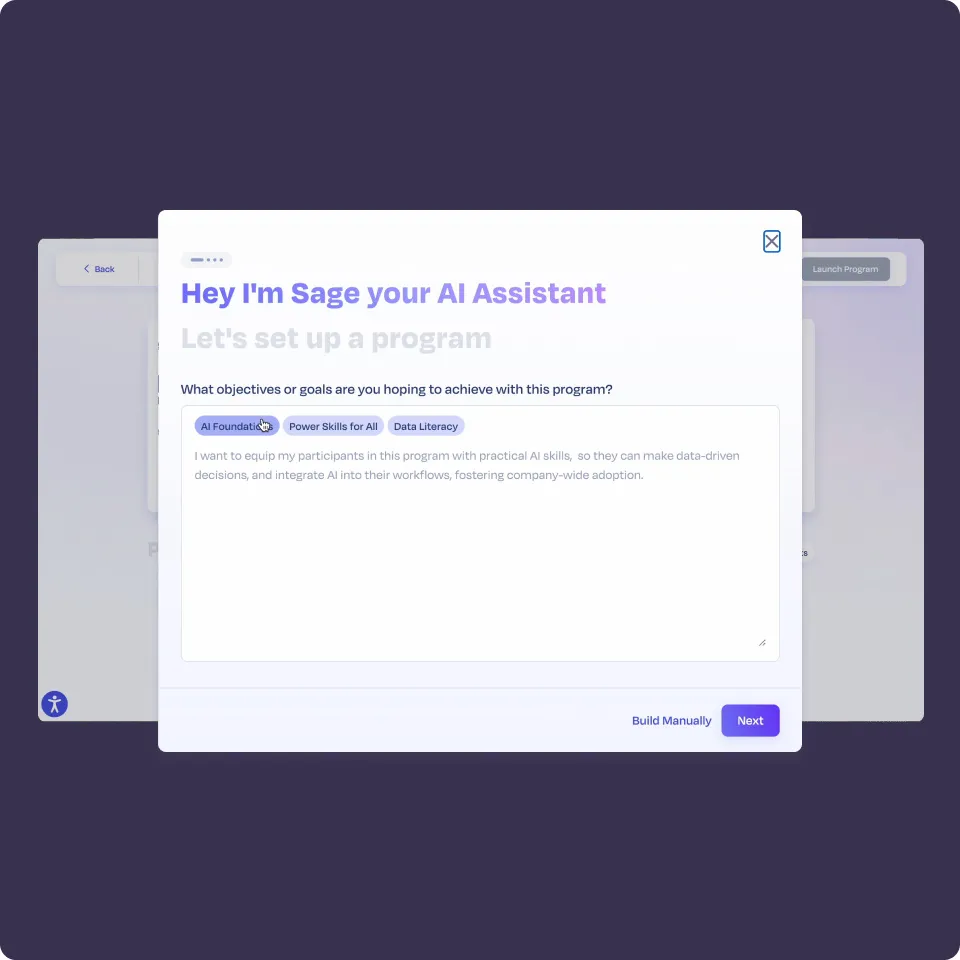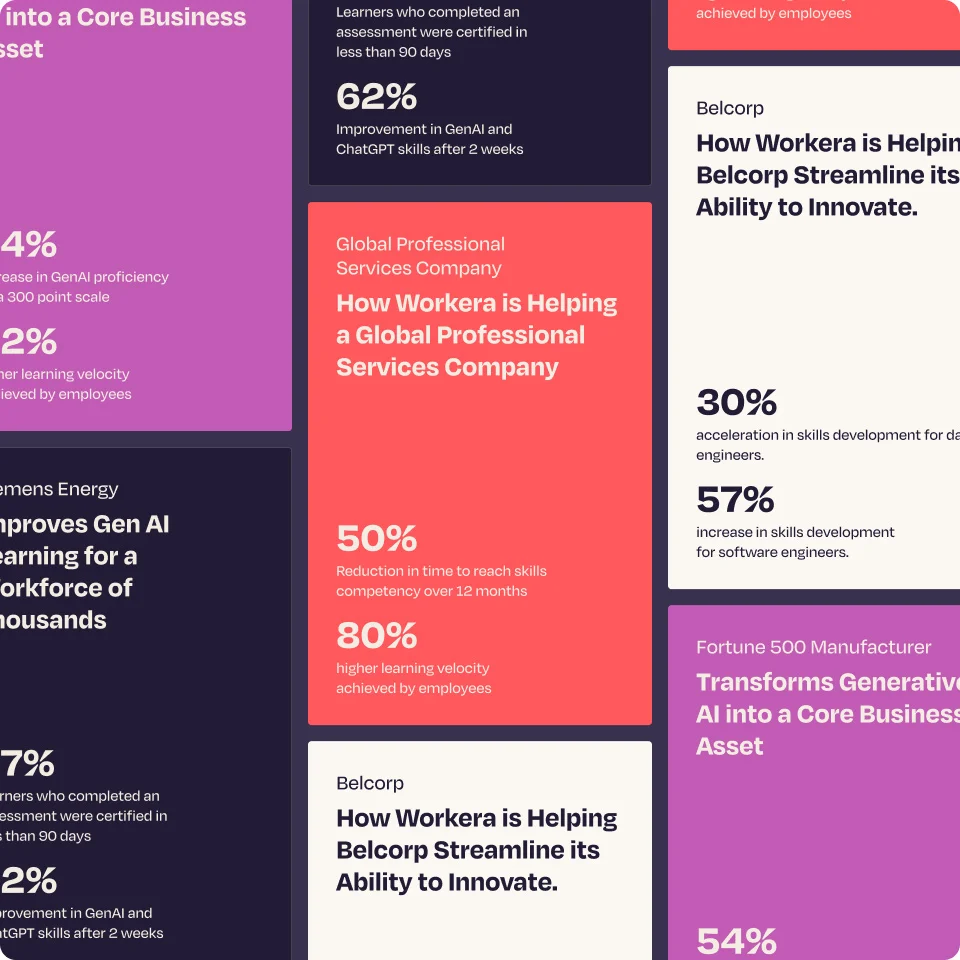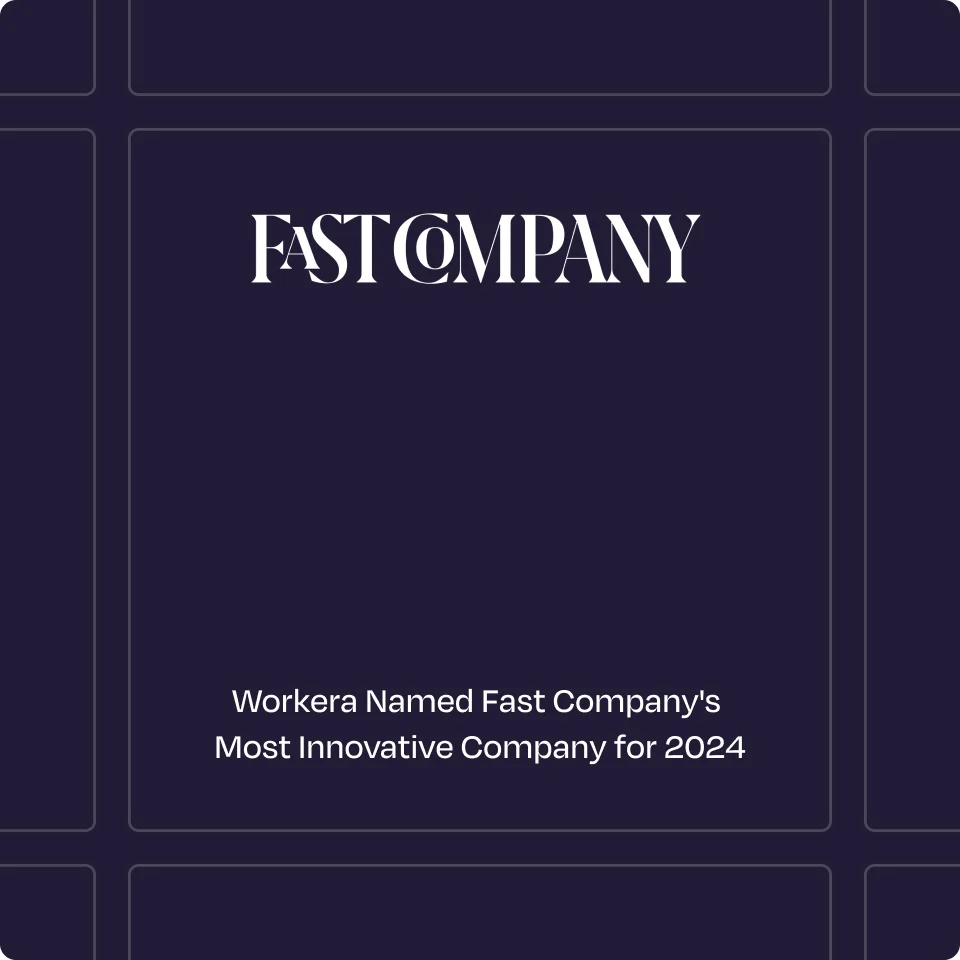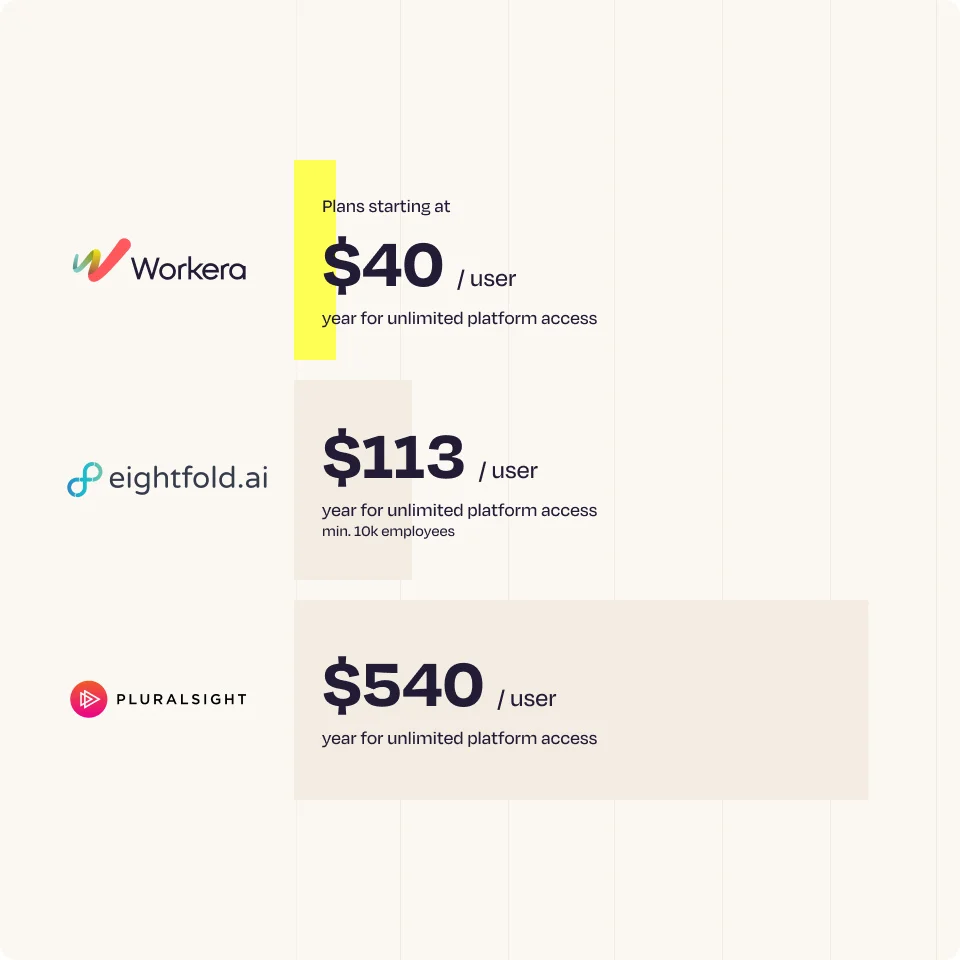The Most Comprehensive Skills Catalog
With over 10,000 skills and growing, Workera offers the most extensive skills library to help your organization stay ahead in today’s rapidly changing landscape. From technical proficiencies to essential soft skills, our catalog is constantly expanding, ensuring your teams are prepared for the demands of the future of work.
Verified Skills Data You Can Trust
Workera combines AI-built assessments with human-in-the-loop verification by industry experts, giving you reliable skill data at every stage of the process. Our trusted proctoring capabilities ensure accurate results that organizations can rely on for high-stakes decision-making, from hiring to development planning.
The Best User Experience
Workera’s platform is as intuitive as it is powerful, modeled after the consumer-grade apps you use daily. Easy to navigate, non-biased, and visually engaging, our platform offers a seamless experience that your workforce will be excited to use, making upskilling a rewarding and straightforward journey for all.
*Admin experience, program management
A Seamless, Self-Improving Skills Platform
Powered by a unified system, Workera’s platform manages both skills data and the learning experience in one place. Our suite of AI agents accelerates every phase of your upskilling program—from automating program design to delivering personalized learning recommendations. And because our AI continually learns from user interactions, your skills program becomes more accurate and effective over time, delivering ever-improving outcomes across your workforce.
Global Financial Services Company
How a Fortune 500 Financial Services Company Boosted Software Engineering Skills with Workera
Average Improvement in Proficiency
Growth in software engineering foundations
To move from "Beginning" to "Accomplished" proficiency at their current learning velocity.
The Leading Skills Intelligence Platform
We’re redefining skills intelligence with groundbreaking solutions, introducing AI-powered assessments that map skills across entire organizations and adapt dynamically to individual learning needs. By constantly evolving and deploying new features, Workera ensures you stay at the forefront of skill development, empowering your teams with the latest advancements to drive meaningful growth.
Workera Named Fast Company's Most Innovative Company for 2024

Workera Named AI Trailblazer for HR Technology in 2024

Priced for Value
With Workera, you pay only for the outcomes that matter most—verified skills intelligence and measurable skills development. Compared to options like HackerRank and PluralSight, Workera delivers comprehensive skills insights without the extra fees, providing a high-value solution that prioritizes the results you care about.

Plans starting at
$
540
/ user
Year for limited platform access

Plans starting at
$
113
/ user
Year for limited platform access

Plans starting at
$
40
/ user
Year for unlimited platform access
